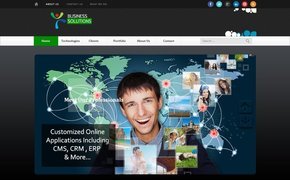In the fast-paced, competitive world of real estate, maintaining strong client relationships and staying organized is paramount to success. This is where a Customer Relationship Management (CRM) system comes into play. But what exactly is a CRM in real estate, and why is it crucial for agents and brokers? This post will explore the ins and outs of real estate CRMs, delving into their features, benefits, and how they can transform your business.
The Core Function: More Than Just a Contact List
At its most basic level, a CRM is a technology solution that helps businesses manage and analyze customer interactions and data throughout the customer lifecycle. In the context of real estate, a CRM is specifically tailored to help realtors and brokers streamline their operations, manage leads, nurture client relationships, and ultimately, close more deals. It goes far beyond a simple digital rolodex; it’s a centralized hub for all aspects of your real estate business.

Image Source: cdn.pixabay.com
Instead of juggling multiple spreadsheets, sticky notes, and email threads, a real estate CRM brings all the necessary information together in one accessible platform. This includes client contact information, communication history, property preferences, showing appointments, transaction details, and much more. The goal is to provide a holistic view of each client and interaction, allowing you to provide a more personalized and effective service.
Key Features of a Real Estate CRM
A robust real estate CRM software offers a wide range of features designed to address the unique needs of real estate professionals specifically. Here are some essential functionalities:
- Contact Management: This is the foundation of any CRM. It allows you to store detailed information about your clients, including contact details, addresses, property preferences (e.g., location, number of bedrooms, budget), communication logs, and any relevant notes.
- Real Estate Lead Tracking: Capturing and managing leads is critical. A good CRM will provide tools for automatically capturing leads from various sources, such as your website, social media, or online portals. It will then track their progress through your sales pipeline, from initial contact to closing.
- Task and Appointment Management: Real estate professionals are often juggling multiple appointments and deadlines. CRM systems help you schedule showings, property inspections, meetings, and follow-up calls, ensuring that nothing slips through the cracks. They often include calendar integrations and reminders.
- Email Marketing and Communication: Many CRMs have built-in email marketing tools that allow you to send personalized communications to your contacts, such as property listings, market updates, or newsletters. This feature is crucial for nurturing leads and staying top-of-mind.
- Transaction Management: Some more advanced CRMs can assist in managing the entire transaction process, from initial offer to closing. This may include features for document management, tracking critical dates, and ensuring compliance.
- Reporting and Analytics: A robust CRM should provide insights into your business performance through detailed reports and analytics. This allows you to identify trends, track lead conversion rates, and measure the effectiveness of your marketing efforts.
- Mobile Access: In today’s mobile-first world, having a CRM accessible from any device is essential. Most real estate CRM systems offer mobile apps or responsive web interfaces, allowing you to manage your business on the go.
Benefits of Implementing a CRM for Realtors
Investing in a CRM system can bring a wealth of benefits to real estate agents and brokers:
- Improved Organization: By centralizing all client and transaction information, a CRM helps to eliminate the chaos of managing data across multiple platforms, leading to better organization and more efficient workflows.
- Enhanced Client Relationships: A CRM provides a 360-degree view of each client, enabling agents to provide more personalized service and build stronger, long-lasting relationships. This includes remembering preferences, past interactions, and key milestones.
- Increased Lead Conversion: By tracking leads through the sales pipeline and automating follow-up tasks, a CRM can significantly increase lead conversion rates.
- Streamlined Operations: Automating repetitive tasks like email follow-ups and appointment reminders frees up valuable time, allowing agents to focus on more important aspects of their business.
- Better Collaboration: For real estate teams, a CRM facilitates better collaboration by providing a shared platform for all team members to access client information and track progress.
- Data-Driven Decision-Making: The reporting and analytics features of a CRM provide valuable insights into business performance, allowing agents to make more informed decisions.
Property Management CRM: A Special Use Case
While many CRMs cater to the general needs of real estate agents, there are also specialized property management CRM systems designed to help manage rental properties. These systems often include features such as:
- Tenant Management: Tracking tenant information, lease agreements, payment history, and maintenance requests.
- Property Maintenance: Scheduling and tracking maintenance tasks, managing vendors, and storing property details.
- Financial Management: Managing rental payments, generating financial reports, and tracking expenses.
- Vacancy Tracking: Monitoring property vacancies and facilitating the tenant screening and onboarding process.
How to Choose the Right CRM for Your Real Estate Business
With numerous real estate CRM options available, selecting the right one can feel overwhelming. Here are some key considerations to keep in mind:
- Your Specific Needs: Assess your unique business needs. What specific problems are you trying to solve? Do you primarily focus on residential sales, commercial properties, or property management?
- Ease of Use: The system should be intuitive and easy to use. A complex CRM that your team struggles to adopt will be counterproductive.
- Features and Functionality: Ensure that the CRM offers all the features you need, such as lead tracking, email marketing, and transaction management.
- Integration Capabilities: Check if the CRM integrates with other tools you use, such as your website, email platform, or marketing tools.
- Scalability: Choose a CRM that can grow with your business. As your business expands, you want a CRM that can accommodate your increased needs.
- Cost: Consider your budget and choose a CRM that offers the best value for your money. There are CRM solutions available at various price points.
Comparison Table of Common CRM Features:
| Feature | Importance for Real Estate Agents | Description |
|---|---|---|
| Contact Management | High | Store and manage detailed client information. |
| Lead Tracking | High | Capture and monitor leads from various sources through your pipeline. |
| Task Management | High | Create and manage tasks and appointments. |
| Email Marketing | Medium to High | Send targeted email communications to clients. |
| Transaction Management | Medium | Track progress of transactions and handle documents. |
| Reporting & Analytics | Medium | Generate reports to analyze business performance. |
| Mobile Access | High | Access CRM on-the-go with mobile apps or responsive design. |
| Integration | Medium | Integrate with other systems like MLS, email providers, marketing platforms. |
| Property Management | Optional (for those managing rentals) | Manage tenants, maintenance, finances and other aspects of rental property management. |
Conclusion: The Power of a CRM in Real Estate
In today’s technology-driven real estate landscape, a CRM is no longer a luxury; it’s a necessity for agents and brokers who want to thrive. A well-chosen CRM for realtors can significantly improve your organization, enhance client relationships, and boost your bottom line. By streamlining your processes, automating mundane tasks, and providing valuable insights into your business, a CRM can empower you to reach new heights of success in your real estate career. Whether you’re focusing on residential sales, commercial properties, or property management, there’s a real estate CRM solution tailored to your needs that can help you achieve your business goals. Effective real estate client management is the backbone of a successful real estate practice, and a well-implemented CRM is your most powerful tool in this arena.
Frequently Asked Questions (FAQ)
Q: Is a CRM just for large real estate agencies?
A: Not at all! While large agencies may benefit significantly from the advanced features of a CRM, even solo agents and small teams can see huge improvements in organization, productivity, and client relationships.
Q: How long does it take to learn how to use a CRM?
A: The learning curve can vary depending on the complexity of the CRM. However, most systems are designed to be user-friendly. Many providers offer training materials and support to help you get up and running quickly.
Q: What is the cost of a real estate CRM?
A: CRM pricing varies depending on the features, number of users, and the provider. There are options available to suit different budgets, from free plans to more expensive enterprise solutions.
Q: Can a CRM integrate with my MLS platform?
A: Many real estate CRMs offer integration capabilities with popular MLS systems, allowing you to automatically import property listings and client preferences. This can save you considerable time and effort. Check with individual providers to verify their specific integrations.
Q: How can a CRM help with marketing?
A: A CRM’s email marketing tools allow you to create personalized email campaigns to nurture leads, announce new listings, or send market updates. Some systems also integrate with social media management platforms.
I’m Rejaul Karim, an SEO and CRM expert with a passion for helping small businesses grow online. I specialize in boosting search engine rankings and streamlining customer relationship management to make your business run smoothly. Whether it's improving your online visibility or finding better ways to connect with your clients, I'm here to provide simple, effective solutions tailored to your needs. Let's take your business to the next level!


